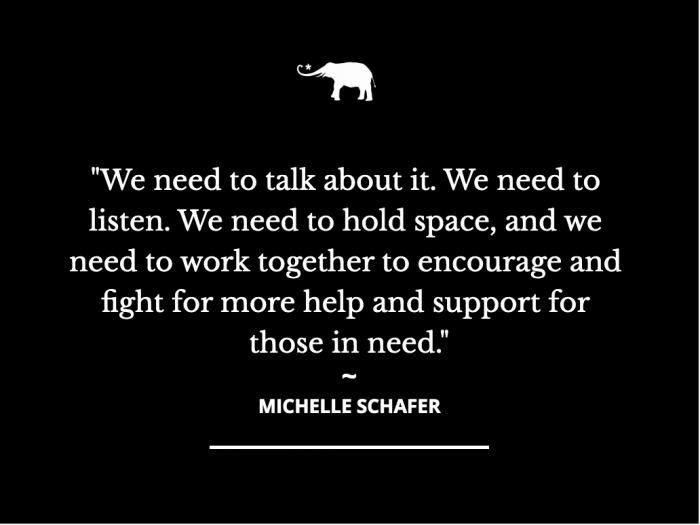View this post on Instagram
It was a day like any other, and as the sun began to set, the darkness descended.
Not the dark of the evening, but the darkness in the air, the darkness my daughter was feeling. And in seven words, my heart was reeling. In seven words, my daughter expressed her immense pain.
“I don’t want to be here anymore.”
This was the culmination of a few years of struggle, and whilst it was terrifying and heartbreaking to hear, it was also a defining moment of absolute vulnerability and courage. It was my awakening to the depth of torment my beautiful girl was feeling—her eyes, a pool of raw distress and suffering. And as I write this, I feel every devastating emotion of that 2014 night.
In 2008, my girl was diagnosed with Type 1 diabetes, an autoimmune disease that usually starts in childhood and requires a lifetime of checking blood glucose levels, medical screenings, and daily insulin. There is so much I would like to explain about T1 diabetes, however, this is worthy of an article of its own, but it’s important to mention, as the diagnosis of this has set the scene for the following years.
It is also critical to note that since T1 diabetes is a chronic illness, a large number of chronic illness sufferers struggle with depression and anxiety.
She had only just turned 13 when she was diagnosed. Just heading into those turbulent teenage years, where hormones take on a life of their own and kids are trying to find their place. Something many do not know is that T1 diabetes often affects hormones, and hormones often affect the management of T1 diabetes. And sometimes another condition will be thrown in for good measure. In my daughter’s case, it was polycystic ovarian syndrome (PCOS). This affects hormones and menstrual cycles and a host of other things.
Being a sporty kid and competing in athletics and soccer at a high level was difficult as a diabetic, but we worked hard at balancing it all, and she handled all the ups and downs in an amazing fashion. What became problematic as a diabetic was eating when she did not want to. When her blood glucose levels dropped quickly or in the middle of the night, she had to eat. Quick carbohydrates like juice, then something more substantial like fruit or a sandwich.
Forcing herself to eat when not hungry was the beginning of the hardest few years she endured. That, coupled with a loss of self-esteem and a belief that she was defined by her appearance and body, body dysmorphia crept in. With that, the cycle of dieting and bingeing commenced. She was subsequently diagnosed with binge eating disorder, which is lesser known than anorexia and bulimia but just as excruciatingly painful and hard to treat.
Binge eating disorder (BED) is not comfort eating or stress eating. It took me a while to understand this. My daughter explained it as a way of controlling her anxiety—when she binge ate, she felt something, rather than numbness. But the cycle of binge eating is horrific for the sufferer and traumatic for those in their life.
My daughter would binge eat at the height of her anxiety, and afterward she would fall into a pit of despair—a pit of self-loathing. She couldn’t look at herself in the mirror, and she hated what she was doing to herself. My heart was breaking.
She was seeing a wonderful psychologist who specialises in eating disorders, and the crux came when the psychologist told me, “You need to find an inpatient facility, and in the meantime, you need to be vigilant because she’s currently at great risk.”
My world collapsed, but I went into fix-it mode. The desperation we feel to get mental health support for ourselves or a loved one is real, because like in most parts of the world, the mental healthcare system is completely f*cking broken. In Australia, if you don’t have good health insurance, you are all but stuffed, because the public system is more detrimental than it is helpful.
I cannot adequately express the ignorance, the lack of facilities, the lack of decent holistic practitioners that can look at the whole picture, not just treat one part with a pill. The frustration was palpable, and all the while I had the life of my precious daughter in my hands, as the anguish of not being able to get the help she needed washed over me.
We finally managed to get her into a facility where she stayed for three weeks, and she was ready and willing to go. It was okay, but none of them understood her eating disorder or her T1 diabetes, which was a real issue. They focused on the depression and the suicide ideation, and they prescribed a myriad of drugs.
Over the years, she tried many antidepressants. Most did not work, and those that did, worked for a short time, but all of them came with side effects. It’s been years of struggle for her, especially around body image, and still on occasion she has an unhealthy relationship with food, but it’s far better these days—she has come a long way.
She’s seeing a fantastic hypnotherapist now, and they are making great strides, but she still lives with anxiety, and the darkness still comes over her, but thankfully, she is now able to see a light, even if in the distance. At 26, she has struggled more than many. She has endured more than many. Yet she works with troubled kids and understands more about life than some double her age.
Mental Health week should be a stark reminder to us all that many people suffer so much pain, and many suffer in silence because we still have not made it a safe space for people to express their true feelings. The judgement and stigma out there is still real, and the ignorance in 2021 is mind-boggling.
Most people in pain do not want to die; they want the bloody pain to stop.
They want to be able to talk about what’s happening inside of them. They want to be able to get the appropriate help. We still have a long way to go. Too many of us are still more concerned about our own comfort than listening to another’s pain.
My daughter is my hero. She has taught me some of my most profound life lessons. Her strength and her courage are shining lights. There is nothing more devastatingly cruel than watching your own child suffer, and you cannot fix it. Watching them sob until there are no tears left. Watching them completely numb, unable to feel their emotions. Watching them try to eat their pain away and then sit in their own self-hatred—spiralling around and around.
Mental illness is as real and as serious as any other illness, yet far too many look upon it as weakness. Weakness is judging others and not having the empathy and compassion to support or try and understand another. Weakness is worrying about your own comfort at the expense of someone suffering. Those who struggle with mental illness are some of the strongest people you will ever meet because they battle their demons, every minute of every day.
I asked my daughter if she was comfortable with me writing this article, and her response was, “Yes, if you think it may help someone else.” I know it will help someone else, as real stories and open discussion about something so often swept under the rug always help those who are struggling. We need to talk about it. We need to listen. We need to hold space, and we need to work together to encourage and fight for more help and support for those in need.
I love my daughter with my whole heart and soul, and she knows no discussion is off limits with me. I want to hear if she’s struggling so I can support her. And even if those words are frightening, like they were that evening in 2014, I want her to say them, and together we will work through it.
She is my inspiration and a big reason I’m studying holistic counselling and volunteering for a suicide crisis line. Some of the most difficult, heartbreaking, and challenging years have taught us so much. My daughter has made me a better person.
My daughter is my hero.
“At the root of this dilemma is the way we view mental health in this country. Whether an illness affects your heart, your leg or your brain, it’s still an illness and there should be no distinction.” ~ Michelle Obama
~







Read 12 comments and reply